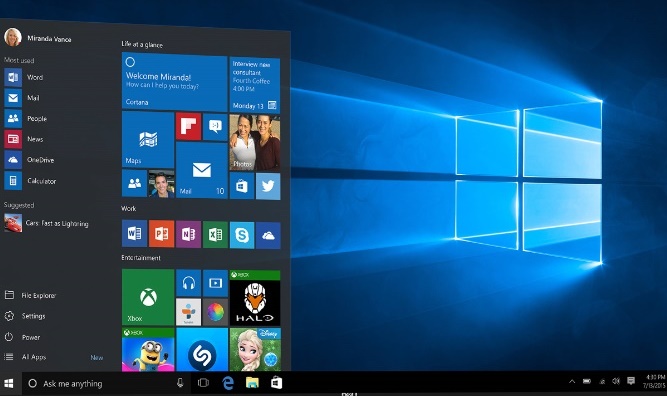Microsoft has released updates to fix various issues bugging users on the Windows 10 platform. The updates are for Windows 10 creators update (version 1703) and anniversary update version 1607.

Version 1703 users will receive KB4057144, or build 15063.877.
Some of the fixes in this update include:
- Fixes bugs on printing PDFs with Microsoft Edge.
- Fixes App-V package issue that cause access control to be handled incorrectly.
- Fixes issue where Microsoft-signed ActiveX controls don’t work when Windows Defender Application Control is enabled.
- Fixes issue where Windows Defender Device Guard or Windows Defender Application Control blocks some applications from running when they run in Audit only enforcement mode.
- Fixes issue where Virtual TPM self-test does not run as part of Virtual TPM initialization.
Users on the Anniversary Update or version 1607, will see KB4057142 or build 14393.2034.
Some of the fixes in this update include:
- Fixes issue where Microsoft-signed ActiveX controls don’t work when Windows Defender Application Control (Device Guard) is enabled.
- Fixes the issue where using smart cards on a Windows Terminal Server system causes excessive memory use.
- Fixes issue where Virtual TPM self-test does not run as part of Virtual TPM initialization.
- Improves compatibility with u.2 NVMe devices, specifically in hot-add/removal cases.
- Fixes issue where the iSCSI Initiator Properties Devices list doesn’t display certain targets.
- Adds compatibility for NGUID and EUI64 ID formats for NVMe devices.
- Fixes issues where synchronization while backing up large Resilient File System (ReFS) volumes may lead to errors.
- Fixes issue where the UWF file commit adds old data to files in certain cases.
- Fixes issue where access-based enumeration may not work as expected in some instances after installation of KB4015217.
- Fixes issue in AD FS where MSISConext cookies in request headers can eventually overflow the headers’ size limit, leading to authentication failure with the HTTP status code 400: “Bad Request – Header Too Long.”
- Fixes issue where AD FS produces an MFA Event 1200 log that does not contain UserID information.
- Fixes issue where retrieving the Certificate Revocation List (CRL) from the Certification Authority (CA) using the Simple Certificate Enrollment Protocol (SCEP) fails`. Users see event ID 45, which says “NDES cannot match issuer and serial number in the device request with any Certification Authority (CA) Certificate.”
- Gives IT administrators the ability to scientifically troubleshoot I/O failures using a detailed event log for the resiliency state transition.
- Fixes issue where the Online Certificate Status Protocol (OCSP)-stapled response is used until the renewal date, even though the certificate has expired, when the OCSP renewal date comes after the certificate expiration date.
- Fixes issue where backward compatibility for managing Microsoft User Experience virtualization (UE-V) with group police is lost.
- Fixes issue that causes delay when searching for new printers to add.
You can either download the updates from Microsoft and install them manually or set Windows to install them automatically.
[irp]
If your Windows 10 PC is not set to update automatically, go to Settings –> Update & Security –> Windows Update.
The automatic update feature is especially useful for those who do not know their Windows version.


Leave a Reply